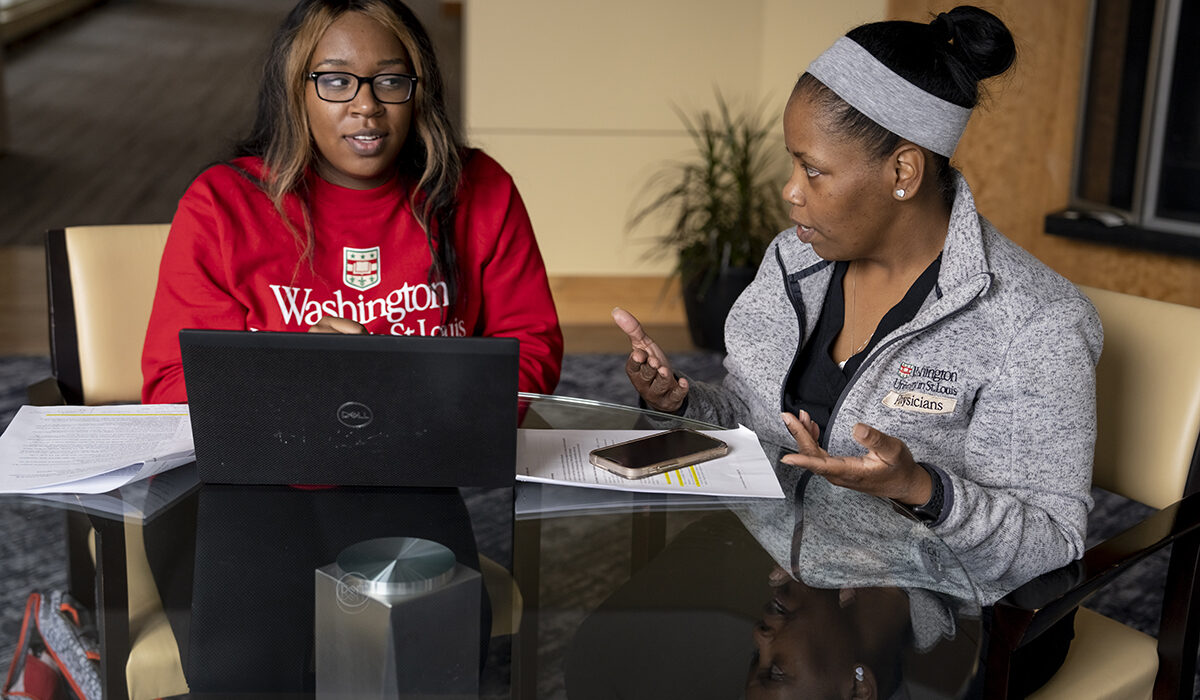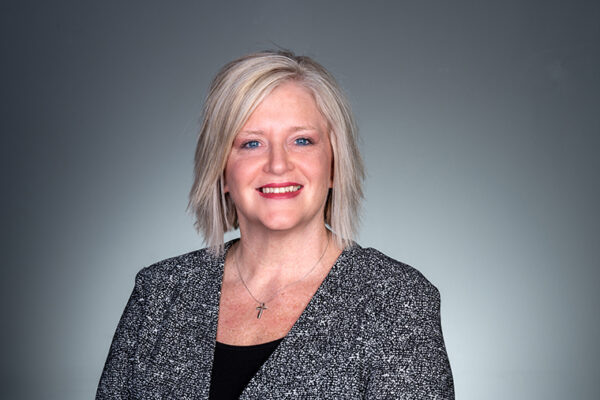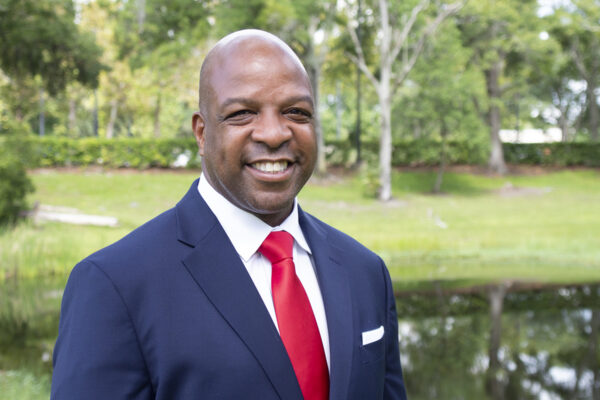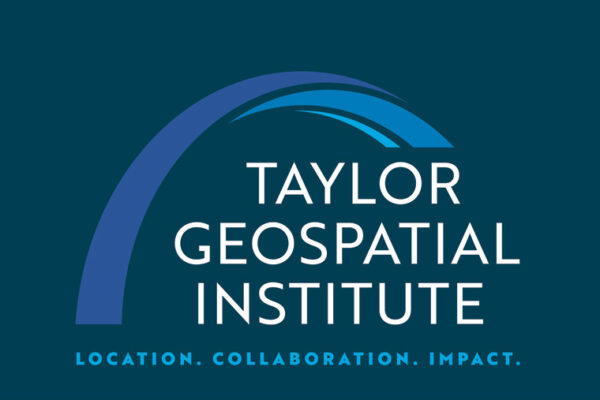Erica Jenkins’ path to nursing started 19 years ago in the Cardinal Glennon Children’s Hospital Neonatal Intensive Care Unit.
That’s where she spent day and night with her son Jaylon, a 26-week preemie who weighed less than 2 pounds. One day, Jenkins fell ill and had to go home. It pained her to leave but a nurse named Michelle — Jenkins never got her last name — put her at ease.
“When I got back, I saw that Michelle had decorated Jaylon’s little isolette just like I would do,” recalled Jenkins, now a medical assistant at the Washington University in St. Louis School of Medicine Diabetes Center. “I can’t tell you how good that made me feel. I realized that day I wanted to be that nurse who steps in and cares for someone’s family member when they need it most.”
Today, Jaylon is strong and healthy, and Jenkins is on track to complete the pre-nursing program at University College at Washington University. The program gives School of Medicine employees and other working adults the academic foundation they need to enter a bachelor’s of nursing (BSN) program. The program is flexible, feasible and for most university employees, free.
“There is a lot more work ahead,” said Jenkins, who starts the Barnes-Jewish College Goldfarb School of Nursing Weekend and Evening Option (WEO) this fall. “But I’m getting there.”
For 90 years, University College has served the changing needs of adult learners. In recent years, it has introduced certificate and degree programs in high-demand fields and added more online options. And this spring, University College unveils a strategic plan that prioritizes access to underemployed and unemployed St. Louisans while better meeting the needs of the St. Louis economy.
And what does St. Louis need? Nurses. According to the Missouri Hospital Association, some 20% of the region’s nursing positions are unfilled. These are good jobs, paying upwards of $100,000 annually. But working adults with little or no college have struggled to find affordable pathways into the field.
Enter the pre-nursing program. Launched in 2021, the program boasts top faculty, high-touch advising and virtual and asynchronous classes. More than 100 School of Medicine employees are currently enrolled, using their university tuition assistance benefit.
Upon completion, graduates may enter the Goldfarb WEO program or another BSN program. Washington University’s Department of Human Resources provides tuition assistance to 20 WEO students annually. Goldfarb also offers generous aid packages.
“The pre-nursing program demonstrates how a well-designed, well-resourced program, developed in partnership with industry leaders — in this case, the Goldfarb School of Nursing — can be a game changer,” said Pat Matthews, associate dean for academics at University College. “Our students benefit; our city benefits — it’s a real win-win.”
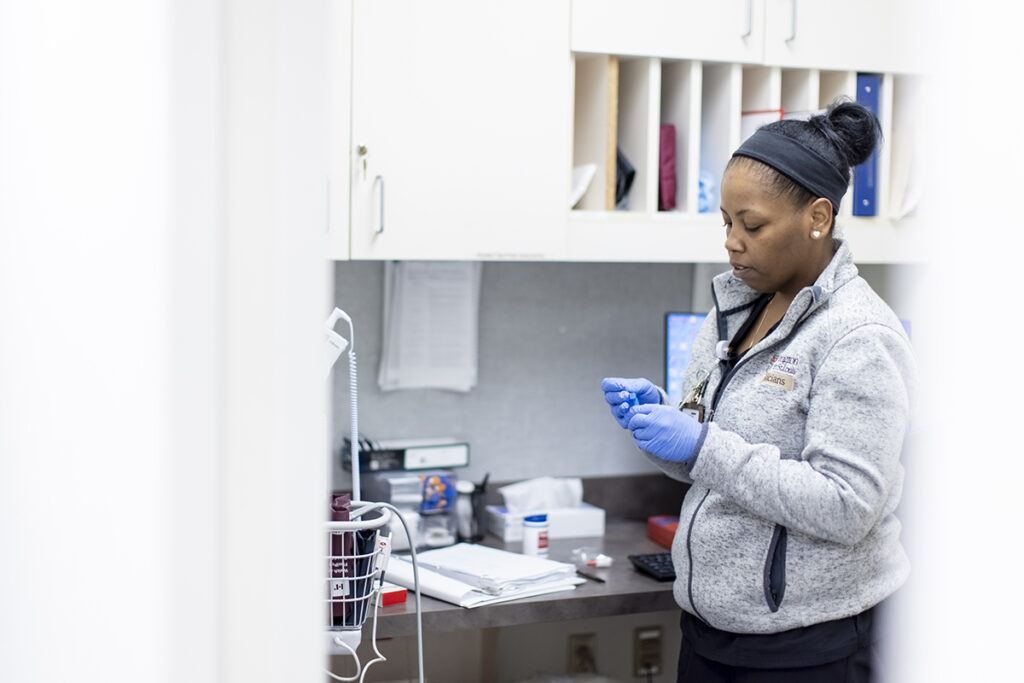
The 54-credit pre-nursing curriculum includes required courses in anatomy, microbiology, English composition and psychology as well as electives in the social sciences and humanities. Students, like Jenkins, who complete an additional six credits earn an associate’s degree.
The coursework is rigorous — it has to be. Nurses must understand human body systems and modern medicine as well as possess strong problem-solving and communication skills. But rigorous does not mean punishing, Matthews said. The program accepts transfer credits and offers group and individual tutoring, joint webinars with Goldfarb School of Nursing staff and free class materials. In addition, University College has instruction specialists to help teachers be their best and has bolstered its college transition course to help new college-goers thrive.
“Our attitude is that these people are capable and we’re going to figure out how to give them the support they need,” Matthews said. “That path will be different for different people — some students may need help with time management, others may need tutoring in algebra — but we’re going to do everything we can to set them up for success. We know that people who use their education for employment are much more likely to come back and do more.”
Indeed, many current pre-nursing students are graduates of the School of Medicine’s medical apprenticeship program, a 12-week on-the-job training course that teaches WUSM employees how to administer vaccines, schedule appointments, coordinate laboratory services and other duties. The program is a huge success, earning accolades from the U.S. Department of Labor and propelling its graduates into better jobs.
One of those graduates is pre-nursing student De’Ona Hardy, a medical secretary in the fetal cardiology department at St. Louis Children’s Hospital and a dear friend of Jenkins. The two worked together at the Diabetes Center when word got out about the nursing program.
“People were really excited,” Hardy recalled. “For a lot of MAs (medical assistants) this was a big deal. It still is. We were like, ‘Let’s hop on this.’”
The time to return to school was right for both of them — Hardy’s two toddlers are young enough that she can squeeze in studying after their bedtime, while Jenkins’ son, Jaylon, is old enough to take care of himself. In fact, he also works on the Medical Campus and plans to go to college. The friends meet regularly to share notes, review study guides and quiz each other with handmade flash cards.
“I started this with the mindset that I’m not going to have much free time but, in the end, it will be worth it,” Hardy said. “I want to be able to assist my kids financially like Erica has. I want to travel and buy my own house. And I want to do something that I really like. I didn’t grow up wanting to be a nurse, but working here, helping patients, is really nice.”
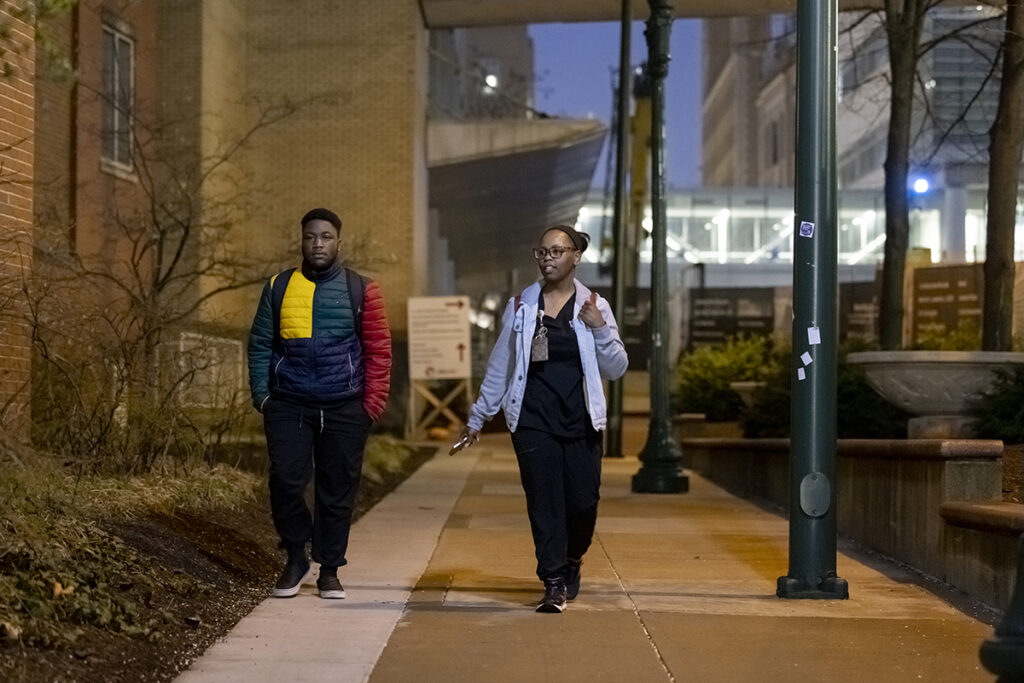
Like Jenkins, Hardy has completed the extra six credits required to receive an associate’s degree. The two will walk together at the university’s May 15 Commencement Ceremony and start Goldfarb’s WEO program in the fall. The program takes 36 months and features a world-class simulation center and clinical experiences in a variety of health care settings.
University College advisers consult almost daily with Misty Hursey, Goldfarb’s admissions adviser, to make sure University College coursework meets Goldfarb’s high standards and to develop joint programs. Hursey already has met Hardy and Jenkins — she makes a point of getting to know all of the pre-nursing students — and is excited to welcome them on campus.
“These University College students come to us incredibly well prepared and focused,” Hursey said. “Like the pre-nursing program, we’ve structured our WEO program in a way that meets the specific needs of this community. We give our students support and a quality instructional experience in a timeframe that allows them to be there for their families and meet their work commitments.”
Elizabeth Fogt, director of advising and student services at University College, has been working with health care students for three decades and is awed by her pre-nursing students.
“To work full time and then take these challenging classes — it’s an adjustment,” Fogt said. “But these students are special. They’ve been in the trenches and know how hard and messy the work of patient care can be — that it can be physically demanding, that you can do everything you can for someone and they might not say ‘thank you.’ Still, they are here and they are committed.”
